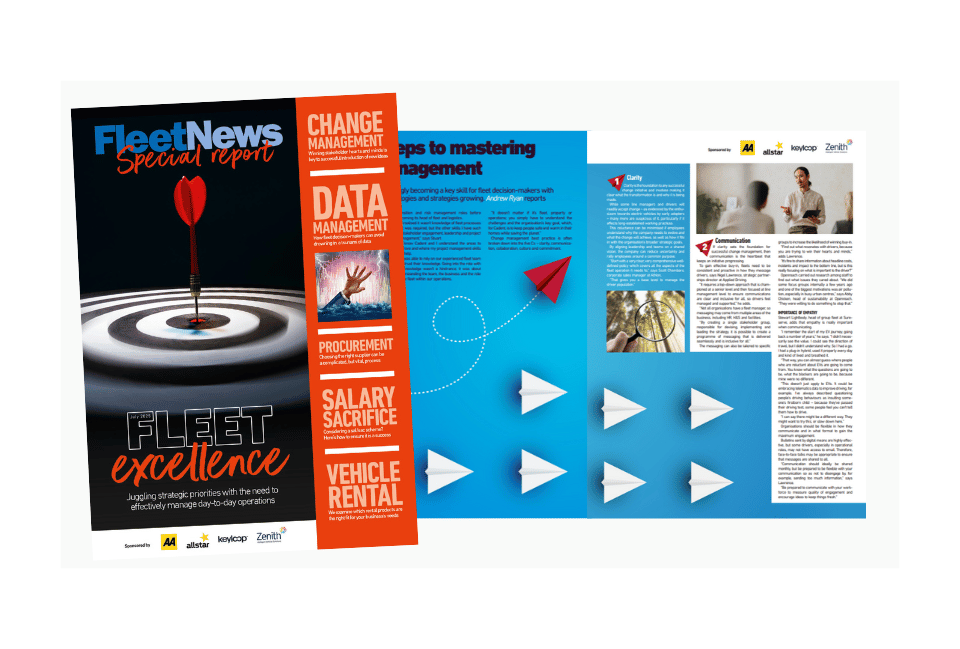There are two primary elements to the role of the modern fleet manager: leadership and operational.
Leadership is concerned with strategy, planning, vision, engagement, motivation – everything that ensures the future success of the business.
The operational side is partly about implementation of the plans that help to achieve the strategy, but also about dealing with the day-to-day running of a fleet, such as vehicle issues, driver queries and reporting to key stakeholders.
It’s a difficult balancing act, a tricky drain on time and resource, which can be eased if you are running a fleet team where operational responsibilities can be delegated, of course.
In our Fleet Excellence report, we look at some key elements that cover the full gambit of the fleet manager role, from handling change management and the role of data, to procurement strategies, to the practical elements of implementing and running a salary sacrifice scheme and how rental can play a key role in cost and carbon reduction plans.
The report, sponsored by The AA, Allstar and Keyloop, features advice from many industry experts, while Cadent’s Lucy Stuart, Network Rail’s James Rooney, Openreach’s Abby Chicken and Sureserve’s Stewart Lightbody are among the fleet leaders providing insight about how they implement and manage change.
In this report:
Five key steps to mastering change management
Five tips for perfect procurement
Salary sacrifice: going from strength to strength
Get the most out of vehicle rental






















Login to comment
Comments
No comments have been made yet.